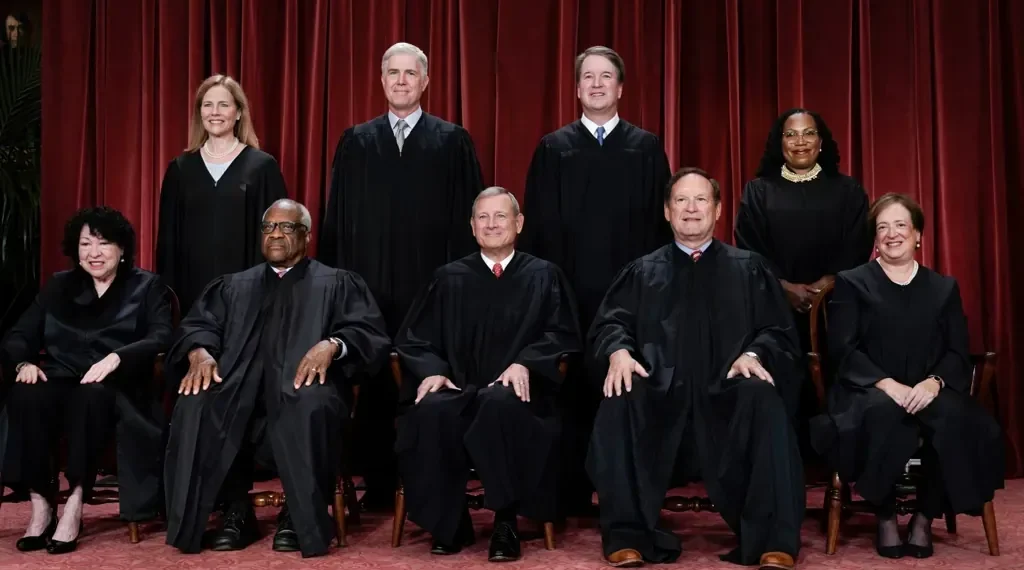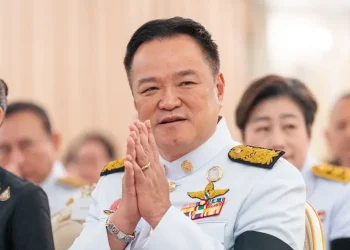Supreme Court Confronts Major Tests of Presidential Power in New Term
Published: October 4, 2025, 09:00 EDT
The U.S. Supreme Court begins a consequential term that could redefine the limits of presidential power and reshape key aspects of American law. With cases involving former President Donald Trump’s executive authority, voting rights, and transgender participation in sports, the justices face decisions with far-reaching political and social impact.
Presidential Power Under Close Review
The U.S. Supreme Court opened its new term on Monday with a docket filled with politically charged and constitutionally significant cases, many linked to former President Donald Trump’s expansive view of presidential authority.
Trump’s previous assertions of executive power — including his use of emergency declarations, broad tariff policies, and challenges to birthright citizenship — have drawn legal scrutiny and divided the high court along ideological lines. The court’s conservative majority has often sided with the former president in preliminary rulings, while liberal justices have voiced concern over what they describe as a pattern of unchecked authority.
Justice Ketanji Brown Jackson, writing in a dissent last term, criticized what she viewed as a lack of judicial consistency. Quoting from the Calvin and Hobbes comic strip, she described the approach as “Calvinball jurisprudence,” where the rules shift to favor one side.
Legal experts say the upcoming cases could define how far a president can go in exercising unilateral power without congressional approval.
Key Cases Challenge Trump’s Executive Authority
Among the most significant cases this term are three that directly test the limits of presidential power.
The first, scheduled for early November, examines whether Trump overstepped his authority when imposing sweeping tariffs under an emergency powers statute. Two lower courts ruled that the president cannot use national emergency declarations to implement tariffs typically reserved for congressional approval.
States and small businesses that filed suit argue that Trump’s approach bypassed constitutional checks on taxation. The administration, however, maintains that existing law grants the president broad discretion to regulate imports — a position supported by dissenting judges on a federal appeals court in Washington, D.C.
In December, the justices will hear arguments on whether a president can dismiss independent agency members without cause. The outcome could overturn a precedent dating back to 1935, which requires “good cause” for removal of Senate-confirmed officials. Conservative justices have previously allowed such dismissals to stand while appeals continued, signaling likely support for expanding presidential authority.
A third major case, expected in early 2026, concerns Trump’s executive order seeking to deny birthright citizenship to children born in the United States to parents without legal status. Lower courts blocked the order, citing the 14th Amendment and a 125-year-old Supreme Court ruling affirming birthright citizenship. The case could force the justices to revisit longstanding interpretations of constitutional citizenship.
Voting Rights and Campaign Finance Also on the Docket
The court will also revisit core issues of voting representation and campaign finance — areas that have repeatedly divided the justices.
In mid-October, the court will hear arguments over congressional redistricting in Louisiana. The case centers on whether race can be considered in drawing district maps under the Voting Rights Act. Louisiana’s Republican-led government no longer defends its prior map, which elected two Black members of Congress. Instead, it is urging the court to reject race-based considerations entirely.
Voting rights advocates warn that a ruling in Louisiana’s favor could eliminate majority-Black districts in several Southern states, weakening minority voting influence. Chief Justice John Roberts and other conservatives have previously questioned race-based policies, including in the 2023 decision that ended affirmative action in college admissions.
The justices are also expected to weigh a challenge to long-standing limits on how much political parties can spend in coordination with congressional or presidential candidates. The appeal seeks to overturn a 50-year-old campaign finance law upheld by the Supreme Court in 2001. Legal observers note that under Roberts’s leadership, the court has steadily rolled back campaign spending restrictions, most notably in the Citizens United decision of 2010.
No hearing date has yet been scheduled for the campaign finance case.
Transgender Athlete Rights Face New Legal Test
The new term will also see the Supreme Court take up cases concerning transgender rights in sports, another issue dividing states and courts nationwide.
More than two dozen states have enacted laws barring transgender women and girls from participating in certain athletic competitions. The court has agreed to hear appeals from Idaho and West Virginia, where lower courts ruled in favor of transgender athletes seeking equal participation.
The justices will consider whether such state laws violate the Constitution’s guarantee of equal protection and Title IX, the landmark 1972 law expanding women’s participation in sports and education. The court has not yet scheduled oral arguments, but the outcome could clarify how far states can go in regulating athletic participation based on gender identity.
Earlier this year, the court upheld a ban on gender-affirming care for minors but stopped short of ruling on broader questions about transgender rights — leaving the issue ripe for further litigation.
Speculation Over Justice Alito’s Future
Beyond the docket, attention also turns to potential changes on the court itself. Justice Samuel Alito, who turns 76 next April, is widely viewed as the most likely member to retire within the next few years.
Observers suggest Alito might consider stepping down in 2026, which would allow a Republican president and Senate to appoint his successor if current political trends hold. However, no official statement has been made.
Alito recently signed a contract to publish a book, marking his first major writing project since joining the court nearly two decades ago. Despite speculation, colleagues describe him as active and engaged, showing no outward signs of imminent retirement.
Justice Clarence Thomas, the court’s oldest member at 77, continues to serve and is expected to become the longest-tenured justice in 2028.
A Defining Term for the Court and the Country
The cases now before the Supreme Court will shape the balance of power among the executive branch, Congress, and the judiciary for years to come.
As Georgetown University law professor Irv Gornstein observed, if ideological divisions persist, “we are in for one of the most polarizing terms yet.”
From presidential authority to civil rights, the decisions rendered over the next ten months could leave a lasting imprint on American democracy and the role of the presidency itself.
This article was rewritten by JournosNews.com based on verified reporting from trusted sources. The content has been independently reviewed, fact-checked, and edited for accuracy, neutrality, tone, and global readability in accordance with Google News and AdSense standards.
All opinions, quotes, or statements from contributors, experts, or sourced organizations do not necessarily reflect the views of JournosNews.com. JournosNews.com maintains full editorial independence from any external funders, sponsors, or organizations.
Stay informed with JournosNews.com — your trusted source for verified global reporting and in-depth analysis. Follow us on Google News, BlueSky, and X for real-time updates.














